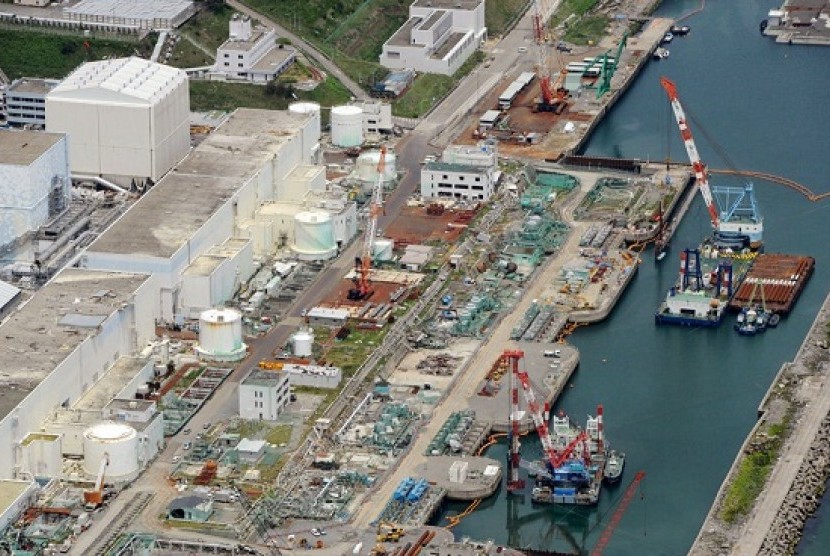REPUBLIKA.CO.ID, TOKYO - Japan's nuclear regulator says radioactive water from the crippled Fukushima power plant is probably leaking into the Pacific Ocean, a problem long suspected by experts but denied by the plant's operator.
Officials from the Nuclear Regulation Authority said a leak is "strongly suspected" and urged plant operator Tokyo Electric Power Co. to determine where the water may be leaking from and assess the environmental and other risks, including the impact on the food chain. The watchdog said Wednesday it would form a panel of experts to look into ways to contain the problem.
The watchdog's findings underscore TEPCO's delayed response in dealing with a problem that experts have long said existed. On Wednesday, the company continued to raise doubts about whether a leak exists.
TEPCO spokesman Noriyuki Imaizumi said the increase in cesium levels in monitoring well water samples does not necessarily mean contaminated water from the plant is leaking to the ocean. TEPCO was running another test on water samples and suspects earlier spikes might have been caused by cesium-laced dust slipping into the samples, he said. But he said TEPCO is open to the watchdog's suggestions to take safety steps.
The Fukushima Dai-ichi plant was ravaged by the March 2011 earthquake and tsunami, and TEPCO has used massive amounts of water to cool the damaged reactors since then. Repeated leaks of the contaminated water stored on site have hampered decommissioning efforts.
Marine biologists have warned that the radioactive water may be leaking continuously into the sea from underground, citing high radioactivity in fish samples taken near the plant.
Atsunao Marui, underground water expert at the National Institute of Advanced Industrial Science and Technology, said there is a possibility of new leaks from reactor buildings. He said TEPCO will have to expand its seawater sampling and its investigation of the underground water system to assess the extent of possible contamination.
"It is important to apply several layers of protection," he told NHK television.


